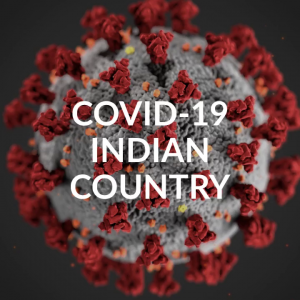
The Indian Health Service has updated its coronavirus data, showing results as of December 29, 2020.
According to the data, 143,771 tests have returned positive for COVID-19, the disease caused by the coronavirus. That represents an increase of 2 percent from the 140,944 cases previously reported by the IHS.
Altogether, 1,669,494 coronavirus tests have been administered within the IHS through December 29, the data shows. That marks an increase of nearly 1.1 percent from the day prior.
Since mid-October, the IHS has been providing additional information about the spread of the coronavirus within the system. The cumulative percent positive column shows the historical COVID-19 infection rate, meaning the number of tests that have returned positive since the onset of the pandemic.
Based on the cumulative percent positive, the highest rates have been seen in the Navajo Area (15.9 percent), the Phoenix Area (13.9 percent), the Oklahoma City Area (12.2 percent), the Albuquerque Area (11 percent) and the Great Plains Area (10.6 percent). The first two regions include the state of Arizona, indicating a disproportionate toll of COVID-19 in the state.
The 7-day rolling average positivity column offers a more contemporary look at the impact of the coronavirus. The data shows where COVID-19 cases have been increasing recently.
Based on the 7-day rolling average positivity, four regions have seen dramatic increases in COVID-19 cases. They are: the Phoenix Area (25.9 percent), the Oklahoma City Area (22.6 percent) and the Navajo Area (19.3 percent) and the Great Plains Area (18.7 percent). Two of the three regions include the state of Arizona.
Overall, 9.3 percent of IHS tests have been positive since the onset of the pandemic, the data shows. Meanwhile, the 7-day average has slowly risen over the last several days. It now stands at 13.7 percent.
The data, however, is incomplete. While 100 percent of facilities run directly by the IHS are reporting data, only 33 percent of tribally managed facilities and 44 percent of urban Indian organizations are doing the same, the agency has told Indianz.Com.
The agency also provided to Indianz.Com the service population for 2019: 2,562,290. Based on that figure, 65.2 percent of American Indians and Alaska Natives have been tested for the coronavirus since the IHS began reporting data in March.
The IHS user population, on the other hand, is a much smaller number. As of 2019, 1,662,834 American Indians and Alaska Natives have lived within a service delivery area and have received health care at an IHS or tribal facility during the previous three years.
Based on the user population, 100 percent have been tested for the coronavirus since the IHS began reporting data in March.
COVID-19 Cases by IHS Area
Data are reported from IHS, tribal, and urban Indian organization facilities, though reporting by tribal and urban programs is voluntary. Data reflect cases reported to the IHS through 11:59 pm on December 29, 2020.
|
IHS Area
|
Tested
|
Positive
|
Negative
|
Cumulative
percent
positive *
|
7-day rolling
average
positivity *
|
|---|---|---|---|---|---|
| Alaska | 417,161 | 8,835 | 348,138 | 2.5% | 2.4% |
| Albuquerque | 81,287 | 6,994 | 56,473 | 11.0% | 6.6% |
| Bemidji | 111,922 | 8,232 | 100,690 | 7.6% | 8.3% |
| Billings | 84,102 | 6,761 | 73,885 | 8.4% | 14.0% |
| California | 52,648 | 4,395 | 45,937 | 8.7% | 13.5% |
| Great Plains | 119,384 | 12,613 | 106,216 | 10.6% | 18.7% |
| Nashville | 50,254 | 3,859 | 45,501 | 7.8% | 14.9% |
| Navajo | 188,941 | 24,674 | 130,111 | 15.9% | 19.3% |
| Oklahoma City | 346,832 | 41,761 | 299,411 | 12.2% | 22.6% |
| Phoenix | 132,765 | 18,276 | 113,438 | 13.9% | 25.9% |
| Portland | 65,010 | 5,409 | 58,732 | 8.4% | 6.1% |
| Tucson | 19,188 | 1,962 | 17,000 | 10.3% | 14.2% |
| TOTAL | 1,669,494 | 143,771 | 1,395,532 | 9.3% | 13.7% |
* Cumulative percent positive and 7-day rolling average positivity are updated three days per week.
Source: Indian Health Service (https://www.ihs.gov/coronavirus)
